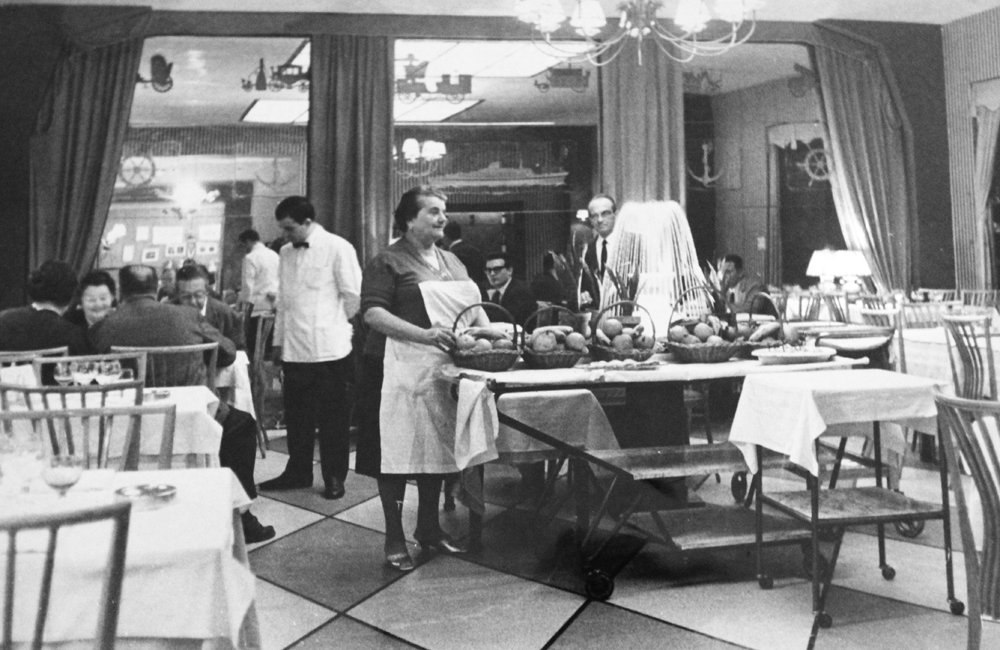
Ristorante Cesarina
Ristorante Cesarina
Stecchi Fritti alla Petroniiana
These are curious little snacks, or aperitivi, I’ve spotted on several menus around Bologna. I’ve also seen them under the name 𝗦𝗽𝗶𝗲𝗱𝗶𝗻𝗼 𝗣𝗲𝘁𝗿𝗼𝗻𝗶𝗮𝗻𝗼. Sticchi means ‘Sticks’ while Spieidino translates to ‘Skewer’.
Named in honor of the patron saint of Bologna San Petronio. They consist of cubes of mortadella and emmental cheese. At least the ones pictured here are emmental, I was a little surprised that they use a Swiss cheese instead of a typical cheese of Bologna. The cubes are skewered and then dredged in flour then eggs then breadcrumbs and fried in hot oil.
They are as good as they sound!
Tortellini in Brodo
Tortellini are kind of a religion here. Every shop window is filled with them, every menu has them featured in at least three ways; 𝘐𝘯 𝘉𝘳𝘰𝘥𝘰 (in broth); 𝘤𝘰𝘯 𝘉𝘶𝘳𝘳𝘰 𝘦 𝘚𝘢𝘭𝘷𝘪𝘢 (with butter and sage); 𝘤𝘰𝘯 𝘗𝘢𝘯𝘯𝘢 (with cream and parmesan).
Pictured here are 𝘉𝘶𝘳𝘳𝘰 𝘦 𝘚𝘢𝘭𝘷𝘪𝘢 and 𝘐𝘯 𝘉𝘳𝘰𝘥𝘰 versions that I had on different days. Tortelletti are the smallest ones, about 5 or 6 can fit on a soup spoon, Tortellini one size up (in second picture) and Tortelloni the largest most plump (third picture). Usually the first two will have a filling of finely minced meat (pork or chicken is common) and mortadella, spiced with nutmeg and parmesan. Tortelloni on the other hand often will be filled with ricotta and spinach and parmesan.
In the past there have been poems and folklore about Tortellini, “If the first Man was lost for an apple,” a Bolognese poet once wrote, “what would he not have done for a plate of Tortellini?”.
City records from 1298 recount an intriguing incident where a man faced arrest for wandering late at night without a torch, arousing suspicions of prowling. In court, he passionately defended himself, explaining that he had unexpected late-night guests at home. In a rush to be the perfect host, he hurried out to purchase some Tortellini to serve his unexpected visitors, hence the seemingly suspicious late-night escapade. The court found this reasonable and he was immediately acquitted. Again in 1909 an argument in a tavern between a local Bolognese postman and a visiting Venetian took place, the Venetian ridiculed Tortellini, the postman attacked him. The postman was found guilty and sentenced to 6 months in jail “without Tortellini” the court specified in the ruling.
In 1928 a famous play QUÈLL CH'HA INVENTA' I TURTLEIN translated as THE MAN WHO INVENTED TORTELLINI which was a fictitious account of a man crazed over accidentally seeing a woman's navel obsessed from that point on he made Tortellini endlessly.



